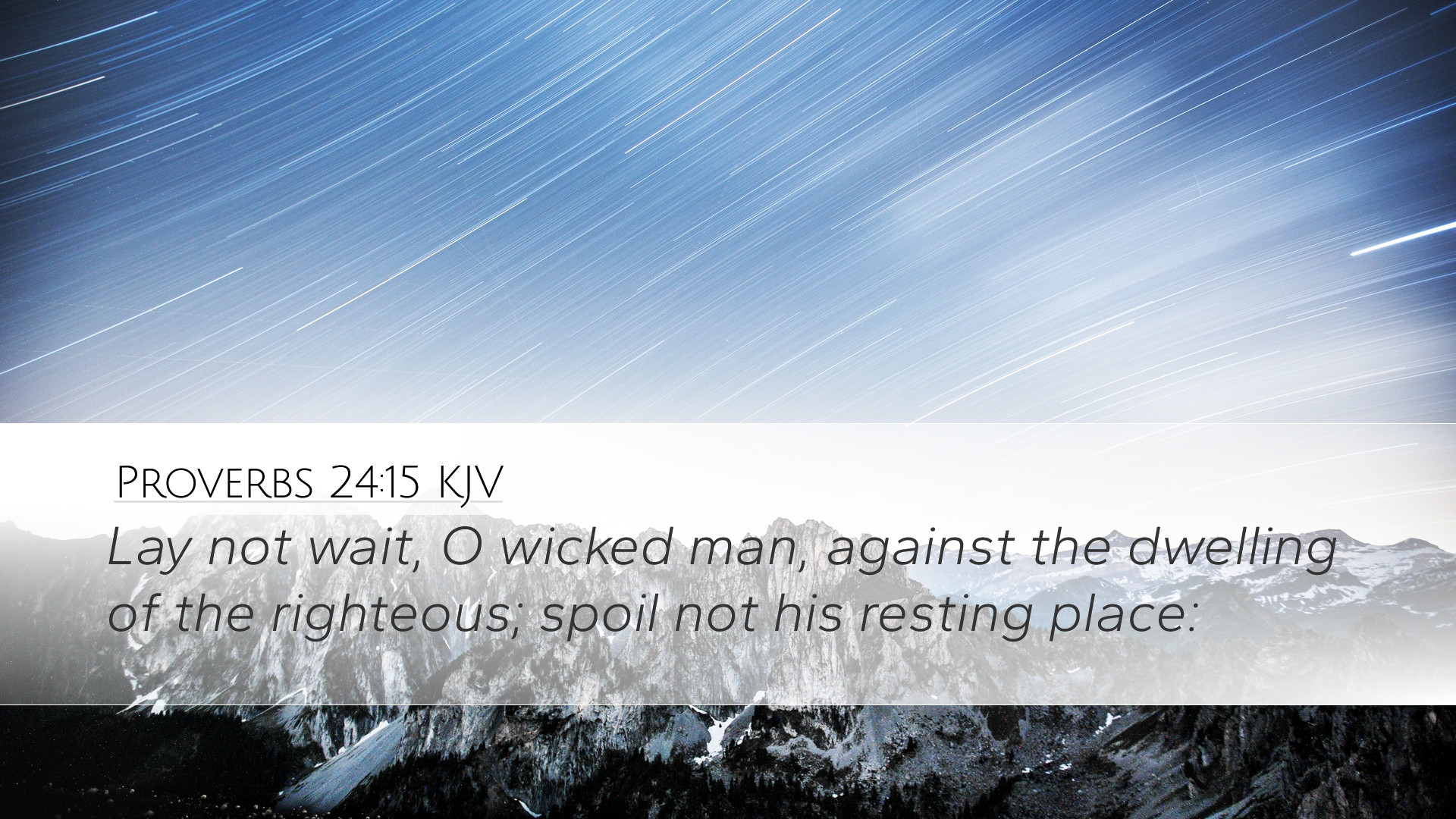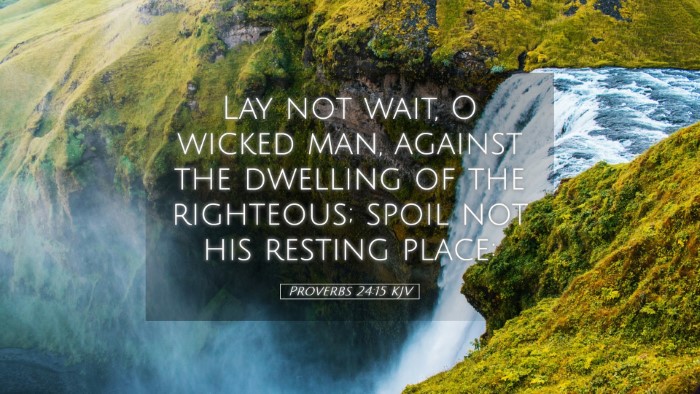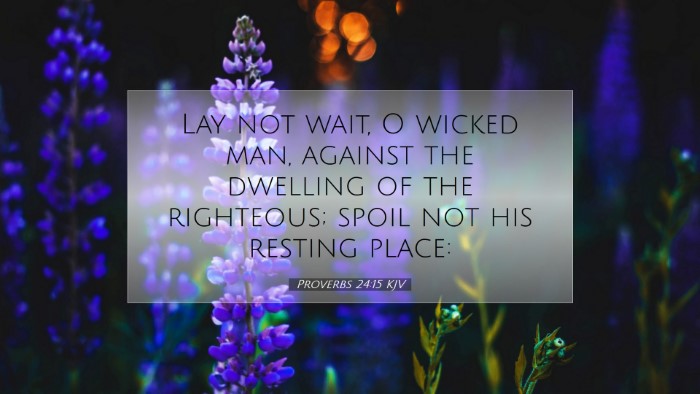Commentary on Proverbs 24:15
Verse Text: "Lay not wait, O wicked man, against the dwelling of the righteous; spoil not his resting place." (Proverbs 24:15, KJV)
Introduction
The Book of Proverbs is a collection of wise sayings and teachings aimed at imparting knowledge and understanding for the betterment of human conduct. Proverbs 24:15 serves as a warning against malicious intentions and underscores the virtue of righteousness.
Historical Context
Proverbs was traditionally attributed to Solomon, although many scholars believe it may have been compiled over centuries. During the time of its writing, societal norms often placed great value on justice, righteousness, and the consequences of evil intentions. This verse reflects a prevalent concern about the oppressive actions of the wicked against the righteous.
Verse Analysis
“Lay not wait, O wicked man”: This phrase acts as a direct address, warning evil individuals against plotting harm. It suggests a deliberate intention to do harm, highlighting the premeditated nature of the wicked’s actions.
“Against the dwelling of the righteous”: The “dwelling” symbolizes the safe space of the righteous person. It is a place of peace and virtue, and thus it becomes the target for the wicked. This emphasizes a fundamental biblical theme: the righteous may be persecuted, but their standing is ultimately in God.
“Spoil not his resting place”: This calls for respect for the tranquility of the righteous life. To “spoil” implies deceitful and destructive actions that can disrupt or ruin the peace and safety that the righteous enjoy.
Theological Implications
This verse encapsulates the ongoing struggle between good and evil. The admonition against waiting to pounce on the righteous reveals the idea that evil takes active measures to disrupt good lives. This adversarial relationship is central to the biblical narrative.
Furthermore, it encourages a moral responsibility not only for the righteous to remain vigilant but also for the wicked to recognize the consequences of their actions. In divine justice, the wicked will face retribution for their malice.
Commentary Insights
- Matthew Henry: Henry emphasizes the grave responsibility of the wicked. He highlights that their intentions to harm the righteous reflect a heart set against God, and he warns that such behavior leads to inevitable judgment.
- Albert Barnes: Barnes explains that the verse illustrates the foolishness of wicked schemes, noting that attempts to harm the righteous only lead to failure and self-destruction. He suggests that the righteous may not be immediately protected, but divine providence ensures their ultimate safety.
- Adam Clarke: Clarke elaborates on the idea that the righteous are a target not just for physical harm but also for slander and betrayal. He stresses that while the wicked may succeed temporarily in their schemes, they are ultimately playing a losing game against divine justice.
Practical Applications
For pastors and theologians, this verse serves as a teaching tool regarding the nature of evil and the importance of living righteously. It invites reflection on pastoral responsibilities to protect their congregants from spiritual and physical harm.
Students of the Bible can derive encouragement from this passage to remain steadfast in their faith, understanding that while they may face opposition, their integrity ultimately prevails in the light of God’s truth.
For scholars, this verse challenges deeper inquiry into the dynamics of sin and righteousness, urging examination of societal structures that either support or oppose the righteous.
Conclusion
Proverbs 24:15 speaks volumes about the nature of wickedness and its repercussions. It exhorts a fundamental biblical truth—that the righteous may face trials, but their commitment to righteousness is not in vain. The assurance of divine justice serves as a guiding principle for believers as they navigate a world where the wicked may plot against them.


